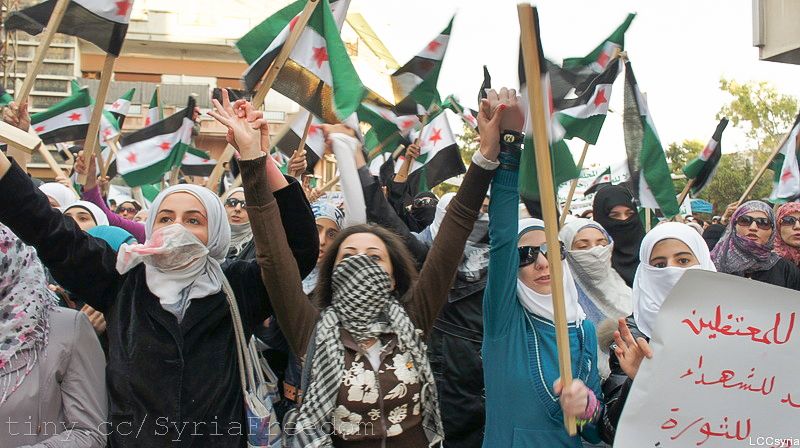
Deaths in Secrecy, the Plight of Syrian Detainees
The UN Human Rights Council (HRC) recently released a report on the systematic abuses and deaths of detainees in Syria. The report used 621 interviews and considerable documentary material to expose a staggering number of international law violations regarding the treatment of detainees by all parties to the Syrian conflict. The Syria Justice and Accountability Centre (SJAC) summarized the report’s findings into the following four conclusions:
1. All parties to the conflict have committed violations against detainees, but the Syrian government’s violations are more systematic and on a larger scale than other groups.
Although the Syrian government has consistently denied the HRC and other international human rights monitoring organizations unfettered access to its territory, eyewitness accounts and documentary evidence strongly suggest that tens of thousands of people are detained by the government at any one time. The HRC report notes that, since March 2011, a countrywide pattern emerged in which civilians, mainly males above the age of 15, were arbitrarily arrested and detained by the government. According to former detainees, prisoners in State run detention facilities are often subject to beatings, torture, and inhumane living conditions, regularly being denied access to clean food, water, or medical attention. Over 200 of the 621 former detainees interviewed for this report witnessed one or more deaths in custody as a result of ill treatment.
The report also found that anti-government groups, Jabhat al-Nusra, and ISIS have subjected detainees to serious abuses, including torture and summary executions. However, the number of detainees held by these groups is believed to be much lower than the number held by the Syrian government. Additionally, unlike the Syrian government, the report found no institutionalized or consistent practice of mass arrests and arbitrary detention, torture, and killing of detained civilians by anti-government groups. Less documentation is available for Jabhat al-Nusra and ISIS; nevertheless, in a recent article, SJAC argued that ISIS has brutal detention practices which seem to have developed into standardized procedures.
2. Syrian state institutions have failed to respect their obligations under international and national law.
Customary international law, which applies to all nations, prohibits enforced disappearance, arbitrary deprivation of liberty, murder, torture, rape, and the conviction or sentencing of a person without a fair trial. Summary and extrajudicial executions or killings are also prohibited, regardless of detainees’ status or alleged offenses. According to the HRC report:
“Through its widespread conduct of mass arrests, arbitrary arrests and enforced disappearance, victimising the general civilian population living in restive areas and persons otherwise perceived to be in opposition to the Government, and the ensuing ill treatment and killing of those detained, Government forces have engaged in the multiple commissions of crimes, amounting to a systematic and widespread attack against a civilian population.”
The Syrian government’s treatment of detainees is also in violation of the Syrian Constitution, which prohibits torture, provides due process guarantees, and outlaws arbitrary detention. State institutions have repeatedly failed to investigate violations of human rights in State run detention facilities. By the same token, Syria’s criminal justice system has systematically failed to uphold human rights standards — the consistent denial of habeas corpus to the issuance of death penalties without due process to the overly broad interpretation of criminal provisions to deny citizens their rights and freedoms.
3. Even though the violations are happening in secret, there are large numbers of victims.
Unlike barrel bombs and public beheadings that are filmed and posted online, deaths in custody occur in secrecy. Despite these abuses not being as visible as other types of violations, they have had a devastating impact on Syrian society, with many people losing loved ones and little to no information provided for closure regarding their fate. For the most part, the government has failed to provide cause of death, documentation, access to remains, or information to victims’ next of kin. In cases where relatives of the deceased are provided a death certificate, the cause of death is commonly listed as “heart attack.” Due to the secrecy around many of these deaths, there has been little to no international or political discourse on the issue.
4. There is a need for international action and accountability.
The UN Security Council issued Resolution 2191 in 2014 which demanded an end to all practices of executions, extrajudicial killings, torture, enforced disappearance, and other violations of international law by all parties involved in the Syria conflict. To date, no party has taken sufficient measures to respect or implement this resolution. Moreover, the Syrian government has consistently denied international organizations and commissions unrestricted access to its territory. Immediate access to all detention facilities is needed so international observers can monitor and record human rights violations. SJAC recently helped draft a statement that advocates for this and other transitional justice mechanisms in Syria.
The HRC report also emphasizes that “Accountability for these and other crimes must form part of any political solution.” Accountability requires high quality documentation that can corroborate information that the UN has already collected. It can also add to the number of former detainees interviewed. In addition to assigning culpability, proper documentation can be used to acknowledge and provide redress to individuals who were arbitrarily detained and tortured.
Through its documentation efforts in Syria and neighboring countries, SJAC is committed to interviewing victims of torture and former detainees according to the Do No Harm principle, but the large number of cases of abuse requires the efforts of many individuals and groups working together to expose these atrocities. SJAC will continue to help provide human rights defenders with resources and advice on documentation best practices to ensure that human rights violations are comprehensively documented and preserved so that they may be used in transitional justice and peace building efforts.
For more information and to provide feedback, please email SJAC at [email protected].